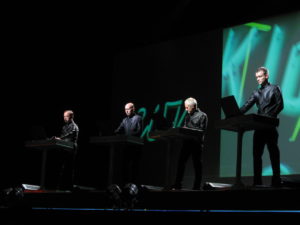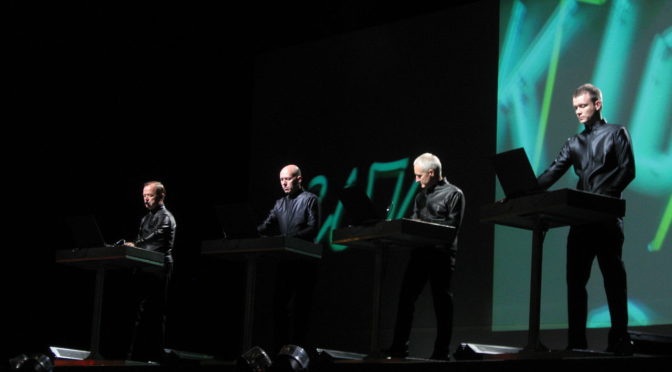A 19-year-long copyright suit filed by the German e-music pioneer band Kraftwerk for infringement against Sabrina Setlur, has been decided, and the result is not good news for the community of creators. Kraftwerk’s Ralf Huetter had previously obtained a court order to suppress Setlur’s 1997 song “Nur mir,” insisting that it contained a drum sequence looped from Kraftwerk’s 1977 “Metall auf Metall.”
The court found that sampling was a basis for, and helped create hip-hop music, and that if the sample’s effect on the rights holder is negligible, then artistic freedom should override the interest of the copyright owner. The German constitutional court further acknowledged sampling to be a “style-defining element” of hip-hop, and therefore overturned the previous court verdict that was in Kraftwerk’s favour.
It went on to note that imposing royalties on composers could be crippling, if copyright owners were allowed to demand any amount, or simply reject the usage request. The court held that composers should be allowed to create without any financial risks or restrictions to the creative process. Therefore, sampling would be permitted, if it is part of a new composition that does not stand in direct competition to the sampled work, and does not damage the copyright owner financially.
 The ruling, which sets a dangerous precedent for copyright owners worldwide, is interesting as it bastardized the 1967 Berne Convention three-step test, which states that a signatory country may allow an exception to the rules against reproduction only 1) in certain special cases, provided that 2) such reproduction does not conflict with a normal exploitation of the work, and 3) does not unreasonably prejudice the legitimate interests of the author. Certainly, one cannot argue that widespread sampling of music constitutes a “special case.” I, for one, disagree with the German court’s decision.
The ruling, which sets a dangerous precedent for copyright owners worldwide, is interesting as it bastardized the 1967 Berne Convention three-step test, which states that a signatory country may allow an exception to the rules against reproduction only 1) in certain special cases, provided that 2) such reproduction does not conflict with a normal exploitation of the work, and 3) does not unreasonably prejudice the legitimate interests of the author. Certainly, one cannot argue that widespread sampling of music constitutes a “special case.” I, for one, disagree with the German court’s decision.
The Berne three-step test is widely referenced in other international agreements, such as the Agreement on Trade-Related Aspects of Intellectual Property Rights (TRIPS), the World Intellectual Property Organization (WIPO) Copyright Treaty (WCT) Article 10, the WIPO Performances and Phonograms Treaty (WPPT), the EU Computer Programs Directive (Article 6(3)), the EU Database Directive (Article 6(3)), and the EU Copyright Directive (Article 5(5)). The test is applied to provide for exceptions to audiovisual recordings as well as literary works.
Update on the CBC Negotiations
During the last round of negotiations, the CFM bargaining team and the Canadian Broadcasting Corporation (CBC) negotiators, agreed to suspend bargaining and enter into a six-month extension of the current agreement. It was felt that more research was required to determine the direction, and forecasted amount of production planned by the CBC for the future, in order to properly structure language and fees.
In addition, the CFM felt that the extension would allow for some of the liberal government’s promised infusion of
$850 million to filter into the system, which would dramatically change the landscape in terms of the CBC’s vision of being a “content provider,” and allow for better adherence to the national broadcaster’s mandate. There will be more news on this at a later date.


